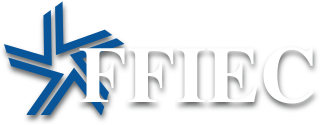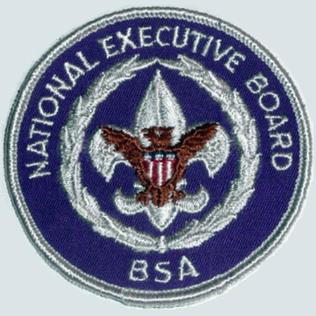
The National Credit Union Administration (NCUA) is an American government-backed insurer of credit unions in the United States, one of two agencies that provide deposit insurance to depositors in U.S. depository institutions, the other being the Federal Deposit Insurance Corporation (FDIC), which insures commercial banks and savings institutions. The NCUA is an independent federal agency created by the United States Congress to regulate, charter, and supervise federal credit unions. With the backing of the full faith and credit of the U.S. government, the NCUA operates and manages the National Credit Union Share Insurance Fund, insuring the deposits of more than 124 million account holders in all federal credit unions and the overwhelming majority of state-chartered credit unions. Besides the Share Insurance Fund, the NCUA operates three other funds: the NCUA Operating Fund, the Central Liquidity Facility (CLF), and the Community Development Revolving Loan Fund (CDRLF). The NCUA Operating Fund, with the Share Insurance Fund, finances the agency's operations.
DECA Inc., formerly Distributive Education Clubs of America, is a 501(c)(3) not-for-profit career and technical student organization (CTSO) with more than 260,000 members in all 50 U.S. states, Washington, DC; Canada, China, Germany, India, Mexico, Poland, Puerto Rico, Spain, and Vietnam. The United States Congress, the United States Department of Education and state, district and international departments of education authorize DECA's programs.

The Advisory Council on Historic Preservation (ACHP), an independent United States federal agency, is charged with the mission to promote the preservation of the nation's diverse historic resources. The ACHP advises the President and Congress on national historic preservation policy and also provides a public forum for stakeholders and the public to influence federal agency decisions regarding federal projects and programs that affect historic properties. The ACHP promotes the importance of historic preservation to foster an understanding of the nation's heritage and the contribution that historic preservation can make to contemporary communities, along with their economic and social well-being.
A directly affiliated local union (DALU) or federal labor union is a US labor union that belongs to the American Federation of Labor and Congress of Industrial Organizations (AFL–CIO) but is not a national union and is not entitled to the same rights and privileges within the Federation as national affiliates.

Royal Society for Public Health (RSPH) is an independent, multi-disciplinary charity concerned with the improvement of the public's health.

The Federal Financial Institutions Examination Council (FFIEC) is a formal U.S. government interagency body composed of five banking regulators that is "empowered to prescribe uniform principles, standards, and report forms to promote uniformity in the supervision of financial institutions". It also oversees real estate appraisal in the United States. Its regulations are contained in title 12 of the Code of Federal Regulations.

The International Organization of Securities Commissions (IOSCO) is an association of organizations that regulate the world's securities and futures markets. Members are typically primary securities and/or futures regulators in a national jurisdiction or the main financial regulator from each country. Its mandate is to:
The National Conference of State Legislatures (NCSL), established in 1975, is a "nonpartisan public officials' association composed of sitting state legislators" from the states, territories and commonwealths of the United States.
The Labor Council for Latin American Advancement (LCLAA) is a nonprofit, nonpartisan Latino organization affiliated with the AFL-CIO and the Change to Win federation. It was founded in 1972 to provide Latino trade union members in the United States with a more effective voice within the AFL-CIO, to encourage Latino participation in the democratic process, and to encourage the organization of Latino workers into labor unions.
The Institute of Practitioners in Advertising (IPA), incorporated by a Royal Charter, is the trade body and professional institute for agencies and individuals working in the UK's advertising, media and marketing communications industry.
Nacha, originally the National Automated Clearinghouse Association, manages the ACH Network, the backbone for the electronic movement of money and data in the United States, and is an association for the payments industry. The ACH Network serves as a network for direct consumer, business, and government payments, and annually facilitates billions of payments such as Direct Deposit and Direct Payment. The ACH Network is governed by the Nacha Operating Rules.
Bank regulation in the United States is highly fragmented compared with other G10 countries, where most countries have only one bank regulator. In the U.S., banking is regulated at both the federal and state level. Depending on the type of charter a banking organization has and on its organizational structure, it may be subject to numerous federal and state banking regulations. Apart from the bank regulatory agencies the U.S. maintains separate securities, commodities, and insurance regulatory agencies at the federal and state level, unlike Japan and the United Kingdom. Bank examiners are generally employed to supervise banks and to ensure compliance with regulations.
The New York State Banking Department was created by the New York Legislature on April 15, 1851, with a chief officer to be known as the Superintendent. The New York State Banking Department was the oldest bank regulatory agency in the United States.

Credit unions in the United States served 100 million members, comprising 43.7% of the economically active population, in 2014. U.S. credit unions are not-for-profit, cooperative, tax-exempt organizations. The clients of the credit unions become partners of the financial institution and their presence focuses in certain neighborhoods because they center their services in one specific community. As of March 2020, the largest American credit union was Navy Federal Credit Union, serving U.S. Department of Defense employees, contractors, and families of servicepeople, with over $125 billion in assets and over 9.1 million members. Total credit union assets in the U.S. reached $1 trillion as of March 2012. Approximately 236,000 people were directly employed by credit unions per data derived from the 2012 National Credit Union Administration (NCUA) Credit Union Directory. As of 2019, there were 5,236 federally insured credit unions with 120.4 million members, and deposits of $1.22 trillion.

The International Economic Development Council (IEDC) is a non-profit membership organization serving economic developers. With more than 4,500 members, IEDC is the largest national and global organization of its kind.

The National Executive Board of the Boy Scouts of America governs the Boy Scouts of America organization. One source reports that there were 72 members of the board in 2001.

Deborah "Debbie" Matz is an American civil servant who served as the 8th Chairman of the National Credit Union Administration.
The University of Central Florida Student Government is the student body government for the University of Central Florida, a metropolitan public research university located in Orlando, Florida, United States. It is the largest Student Government within the state of Florida and one of the largest in the United States. It also often places in the top ten Student Governments nationally for the services and outreach it provides for the students it serves. SG also serves as the liaison between the student body and University Administration. Three branches, an executive, a legislative, and a judicial are governed by the student-adopted Constitution.

Michael E. Fryzel is an American attorney with offices in Chicago, Illinois. Following the 2016 general election, Fryzel served on President Donald J. Trump's Transition Team and developed the Agency Action Plan for the National Credit Union Administration.
The following is a timeline of the presidency of Jimmy Carter, from January 1, 1979 to December 31, 1979.










